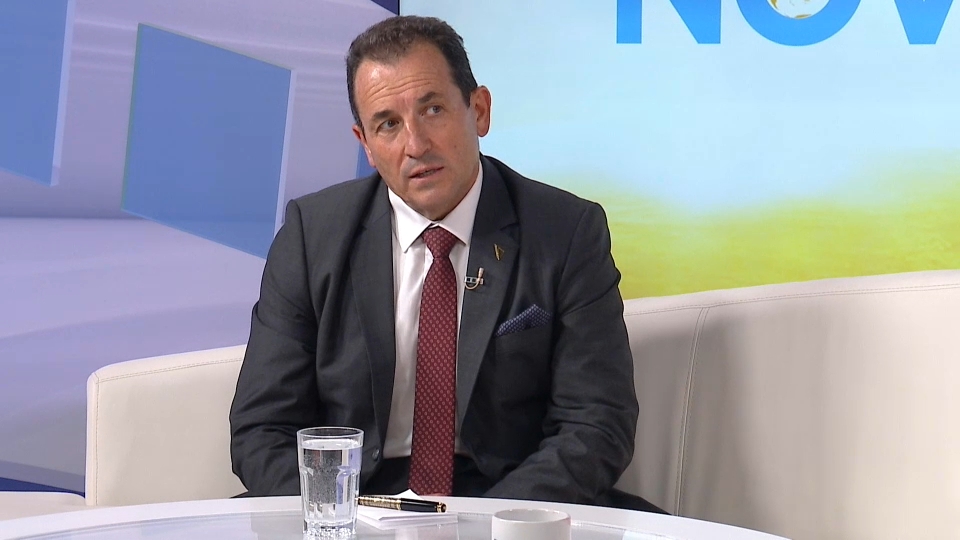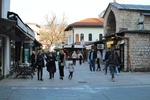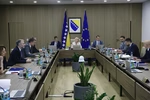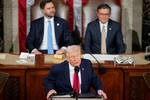BiH Sec Min: I don't think High Rep fully supports HDZ BiH on election reform

There are policies in the region which represent the continuation of war using different means and the people have even gotten used to political leaders causing more problems than they are solving, Bosnia’s Security Minister, Selmo Cikotic, told N1.
Oglas
Cikotic commented on statements often repeated by Serbian officials recently, most notably Serbia’s Interior Minister, Aleksandar Vulin, who has been advocating for the strengthening of a ‘Serb world’ in the Western Balkans.
"We have policies in the region that are a continuation of the war by other means. The wars of the 1990s were preceded by the ideology of ‘all Serbs within one state’ and a somewhat less hidden political strategy of ‘Greater Serbia’. In a way, we have relapses of that policy in changed circumstances," Cikotic said.
He also commented on Germany’s future role in Bosnia and Herzegovina, as well as the role of High Representative Christian Schmidt, the international official tasked with overseeing the civilian implementation of the 1995 Dayton Peace Agreement.
Cikotic said that he expects Germany to continue contributing to “stabilisation of the situation, development of the economy and resolution to open political issues in BiH” even after German Chancellor Angela Merkel leaves the office.
“Which does not mean that Germany will support one side - those who are fighting for BiH and those who are against the interests of BiH,” he said.
As for Schmidt, Cikotic said that recent statements the High Representative made were perceived as his support for the position of the Croat Democratic Union in Bosnia (HDZ BiH) regarding electoral reform in the country.
Cikotic said that there should be some “analytical and political composure” when analysing Schmidt’s statements.
“I am not inclined to believe that Schmidt will support the Election Law to the extent that the HDZ wants it,” he said.
Kakvo je tvoje mišljenje o ovome?
Učestvuj u diskusiji ili pročitaj komentare
Oglas
Kakvo je tvoje mišljenje o ovome?
Učestvuj u diskusiji ili pročitaj komentare
Oglas
NAJČITANIJE
Oglas
Oglas
Najnovije
Oglas
Oglas





 Srbija
Srbija
 Hrvatska
Hrvatska
 Slovenija
Slovenija



























































